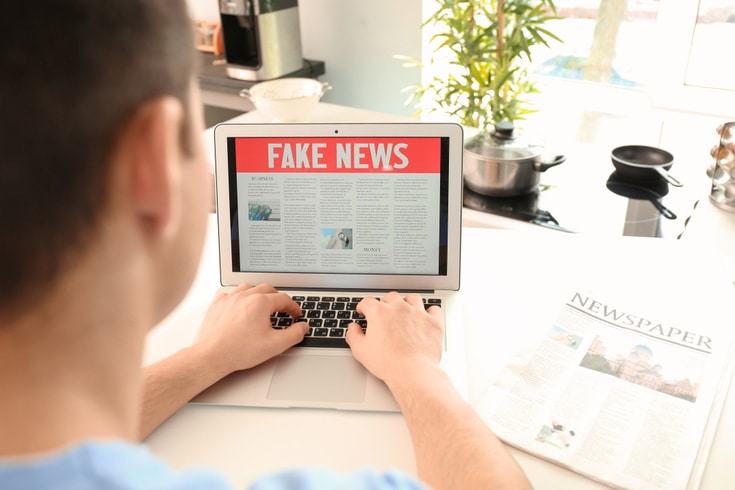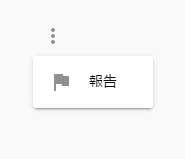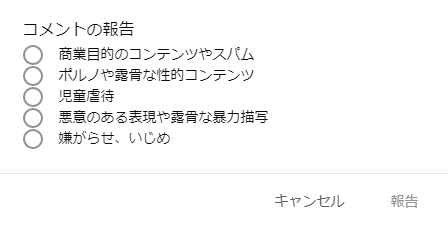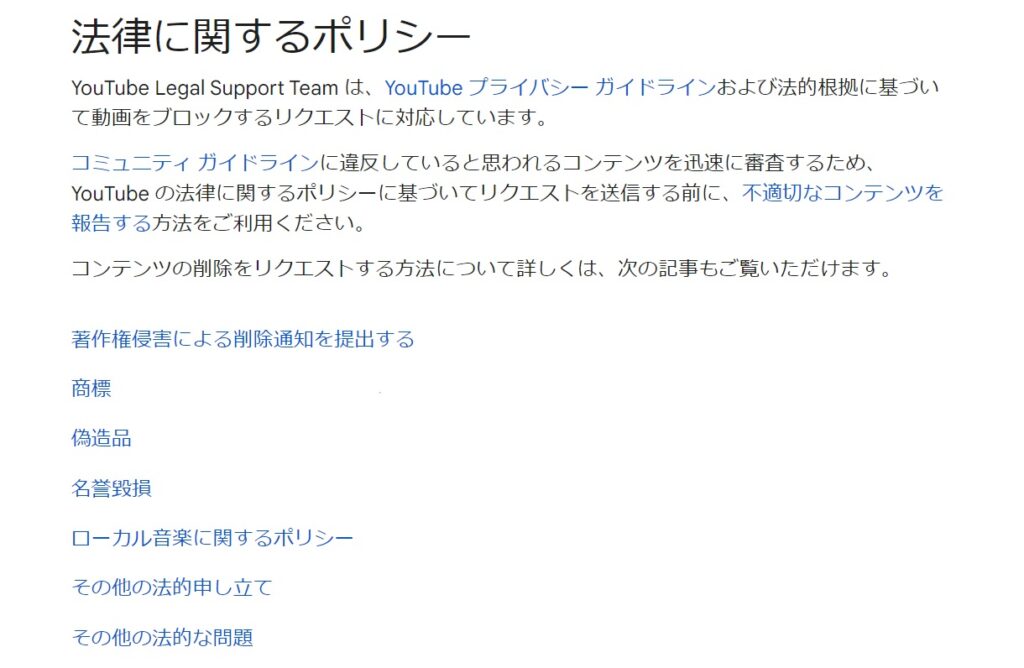What is the Method to Request the Removal of Defamatory Comments on YouTube Videos? An Explanation by a Lawyer

YouTube videos come with a comment section. This is a place to write impressions and thoughts about the video content, but among them, there are some that defame the poster or others. Since YouTube’s comment section is seen by an unspecified number of people, there may be many who want to delete such defamatory comments.
In this article, we will explain how to delete defamatory comments posted on YouTube.
What Kind of Comments are Subject to Deletion Requests on YouTube?

Various comments are posted in the comment section of YouTube, but what kind of comments are subject to deletion requests? For example, it’s easy to judge that comments attacking others, such as defamation, are subject to deletion requests, but can you make a deletion request for a comment simply because you personally don’t like it?
The YouTube Help Center states the following:
Reporting an issue doesn’t guarantee that the content will be removed automatically. Reported content is reviewed according to the following guidelines:
YouTube Help|Report inappropriate videos, channels, or other content on YouTube[ja]
・Content that violates the Community Guidelines will be removed from YouTube.
From the above statement in the YouTube Help Center, it is clear that content violating the Community Guidelines is subject to deletion.
Contents of YouTube’s Community Guidelines
The content prohibited by YouTube’s Community Guidelines[ja] can be broadly classified into five categories.
- Spam and deceptive practices
- Sensitive content
- Violent or dangerous content
- Regulated goods
- Misinformation
Many of the above-mentioned prohibited contents are designed with YouTube videos in mind. Therefore, we will introduce important points in relation to comments attached to YouTube videos.
Harassment and Cyberbullying

An important point in relation to comments attached to YouTube videos is “harassment and cyberbullying”. The policy on “harassment and cyberbullying” states the following:
Content that includes threats to individuals is not allowed on YouTube. Also, content that targets individuals for long-term or malicious insults based on their inherent attributes is not allowed. These attributes include membership in a protected group and physical personalityistics.
YouTube Help|Policy on Harassment and Cyberbullying[ja]
For example, the following expressions can be subject to removal requests as content related to harassment and cyberbullying:
- Repeatedly presenting someone else’s photo and making comments like “Look at his teeth. Disgusting.”
- Making comments like “Look at this filthy guy (defamation targeting a protected group). I wish he would get hit by a truck.”
- Making comments like “Look at this dog-like woman. She’s not a human, she’s a mutant.”
Protection of Personal Information
Another important point in relation to comments attached to YouTube videos is “protection of personal information”. The content related to “protection of personal information” is described as follows:
[Criteria for Removing Content]
In order for content to be considered for removal, it must clearly identify an individual in the content in question. If you are using the privacy infringement claim process, please confirm in advance that the content contains information that can identify you. YouTube considers the following points when determining whether an individual can be identified:
・Images or sounds
・Full name
・Financial information
・Contact information
・Other personal information YouTube Help|Protection of Personal Information[ja]
Comments related to the above matters are subject to removal requests as comments related to privacy.
Criteria for Determining When YouTube Comments are Considered Defamatory

So, when do YouTube comments cross the line into defamation? Here, we will explain the concepts of “defamation (infringement of honor)” and “insult (infringement of feelings of honor)” in civil law.
Defamation (Infringement of Honor)
Firstly, the Supreme Court defines honor as “an objective evaluation received from society regarding a person’s personality, virtue, reputation, credit, and other personal values” (Supreme Court ruling, June 11, 1986 (Showa 61), Minshu Vol. 40, No. 4, p. 872). Infringement of honor, as the name suggests, refers to the violation of this honor. There are three main criteria for this judgment, and if these are met, it can be said that there is an infringement of honor.
In the case of defamation in the comments section of YouTube, like in civil cases, the judgment is made in the order of ① whether there is a “decrease in social evaluation”, ② whether it is a “statement of fact” or an “opinion/commentary”, and ③ if it is a statement of fact, “is the stated fact true?”, if it is an opinion/commentary, “is the premise of the opinion true, and is the expression appropriate?”
Firstly, regarding ① social evaluation, the content written and the specific situation are taken into account in the judgment. In case law, it has been explicitly stated that the judgment is made based on the impression captured when read with “ordinary attention and reading by a general reader”.
If the above-mentioned decrease in social evaluation is recognized, next, it is determined whether the content written is ② a “statement of fact” or an “opinion/commentary”. The difference between these is whether it can be “proven by evidence”. If the existence or non-existence of a fact can be proven by evidence, it is considered a “statement of fact”, and if not, criticism or discussion of the value of things is considered an “opinion/commentary”.
Finally, if it is deemed a “statement of fact”, the truth of the fact in question is determined. If this is different from the truth, it is recognized as defamation. However, if it is true, the illegality is negated, and defamation cannot be established.
On the other hand, in the case of “opinion/commentary”, in addition to the criteria for a statement of fact, whether the expression was appropriate is also an issue. Therefore, even when the important part of the fact is true, if the expression is “something that deviates from the realm of opinion/commentary” (Supreme Court ruling, September 9, 1997 (Heisei 9), Hanji No. 1618, p. 52), it can be recognized as defamation.
Related article: What are the conditions for suing for defamation? Explaining the requirements and average compensation[ja]
Infringement of Feelings of Honor (Insult)
On the other hand, an insult is something that is worth protecting individual feelings of honor. The Supreme Court defines feelings of honor as “a subjective evaluation that a person has about his/her own personal value” (Supreme Court ruling, December 18, 1970 (Showa 45), Minshu Vol. 24, No. 13, p. 2151), and the criterion is whether it “exceeds the limit allowed by social norms”.
Regarding the criteria for determining an insult, the above Supreme Court ruling indicates that “the content and circumstances of the post must be considered”. Therefore, the context of the expression that may be an insult, the circumstances under which the post was made, and whether there were unavoidable circumstances regarding the content written in the circumstances, are also factors in the judgment.
In the case of feelings of honor, unlike in the case of infringement of honor, even if it is not known who posted it, if the target person felt insulted, it may be established.
Related article: What is the infringement of feelings of honor (insult)? Explaining examples of weekly magazine reports, etc.[ja]
Consultation Services for Defamation on YouTube Comments
If you believe you have been defamed as described above, we will introduce you to some consultation services you can turn to.
Human Rights Consultation Office of the Ministry of Justice
At the Human Rights Consultation Office of the Ministry of Justice, nationwide legal affairs bureau staff and human rights defenders (private individuals who accept human rights consultations and promote human rights awareness based on the Japanese Human Rights Defenders Act) are available for consultation. In addition to advice, if illegality is recognized, they also make deletion requests to providers and others from the legal affairs bureau.
If you are worried about sexual harassment, power harassment, domestic violence, corporal punishment, bullying, defamation on the Internet, discrimination, etc., and think, “Is my problem a violation of human rights?” please feel free to consult us without worrying alone. We will keep your secrets. Consultation is free.
Ministry of Justice: Human Rights Consultation[ja]
Illegal and Harmful Information Consultation Center of the Ministry of Internal Affairs and Communications
The Illegal and Harmful Information Consultation Center has not only consultants but also legal advisors, so in addition to providing advice and information, they will also introduce you to related organizations if necessary. However, they do not act on behalf of deletion requests to providers and site administrators.
If you are wondering how to delete defamatory (harassing) posts on the Internet, or how to identify the person who posted them, the Illegal and Harmful Information Consultation Center provides advice and related information to properly respond to troubles on the Internet.
Illegal and Harmful Information Center[ja]
Lawyers
If you want to make a deletion request quickly, want to increase the probability of deletion as much as possible, or if you can identify the person who made the post and want to claim damages or file a criminal complaint, it would be a good idea to consult a lawyer. In recent years, there are lawyers or law firms that specialize in measures against the increasing number of defamation cases on the Internet.
How to Request the Removal of YouTube Comments

If the comment is on your own channel, you can delete it as the administrator. But what should you do if someone posts a defamatory comment on someone else’s channel and the channel administrator does not delete it?
There are three possible methods to request the removal of comments on YouTube:
- Request removal from the “Report” option next to the comment
- Request removal through the “Privacy Complaint Process” for comments that violate privacy
- Request removal from “Remove Content from YouTube” for illegal comments
Application for Deletion from the “Report” Option Next to Comments
The application for deletion from the “Report” option next to comments is carried out through the following procedure.

① Select and display the comment you want to delete from the video’s comment section
② Click or tap on “Report” from the symbol on the right end of the comment
③ From the report of the comment, select an item that is close to the violation and report it

With the above procedure, it is possible to apply for deletion. For the reported comments, a review will be conducted by YouTube, and if the comment is judged to be in violation of the Community Guidelines, the comment will be deleted.
Request for Removal from “Legal Policy”
Requests for removal from the “Legal Policy” due to illegal comments are made through the following procedure.
① Access the “Legal Policy[ja]” and select the relevant item.

② Once the removal request form corresponding to the selected item is displayed, fill in the necessary details and submit your removal request.
Conclusion: If You’re Struggling with Online Defamation, Consult a Lawyer

We have explained how to request the removal of defamatory comments posted on other people’s YouTube videos. With the recent surge in YouTube’s popularity, the comment sections of YouTube videos are inevitably being exposed to more people. It’s crucial to understand how to handle such situations so you can respond quickly if you find yourself being defamed.
Whether a comment qualifies for removal and the method for requesting removal can vary based on different criteria. If you’re having trouble, please consult with a lawyer who specializes in reputational risk management.
Introduction to Our Firm’s Measures
Monolith Law Office is a legal office with extensive experience in both IT, particularly the internet, and law. In recent years, information related to reputational damage and defamation spread on the internet has been causing serious harm as a “digital tattoo”. Our firm provides solutions for dealing with these “digital tattoos”. Details are provided in the article below.
Areas of practice at Monolith Law Office: Digital Tattoo[ja]
Category: Internet





















